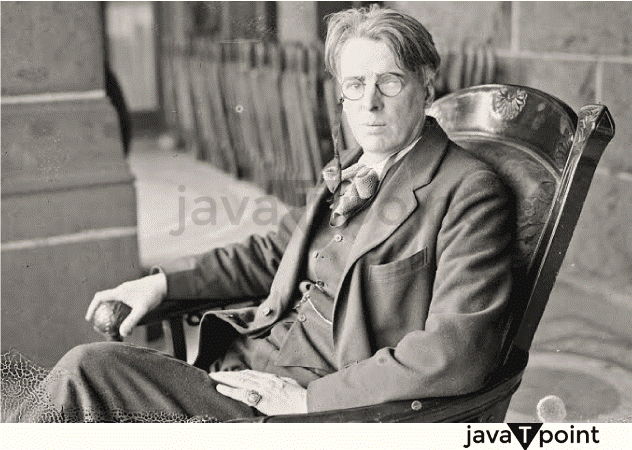When You Are Old Poem Summary in English Class 12thAbout the authorOne of the best Irish poets is William Butler Yeats (1865-1939). His early poetry was influenced by Romanticism and was included in his first book, Crossways, which was published in 1889. His work maintained its concentration on conventional rhyme patterns and poem forms as his career progressed and modernism brought forth literary changes, but he grew more political, more allusive, and more elliptical. His later work, like the poem "Sailing to Byzantium" from 1927, reveals a serious and reflective artist whose images and allusions resist straightforward interpretation. Although he supported Irish independence, he was uncomfortable with the violent and extreme political and military strategies used by many of his countrymen. In 1923, he received the Nobel Prize in Literature. 
PrefaceEven though W.B. Yeats did compose political poetry, "When You Are Old" is not one of them. It should be remembered, though, that Maud Gonne was seen in Ireland as a political person, just like Yeats. Both were ardent nationalists, and Yeats fell in love with her because of this fervour and her striking beauty. Yeats made several marriage proposals to her, but she rejected them all. Both went on to have second marriages, but there is no denying Gonne's influence on Yeats' writing. The concluding line of this poem is somber; the speaker is reminding his former mistress that their love did not last and that this is something she should regret for the rest of her life. Upon first reading, many people assume that this is a poem about love. 
When You Are Old How many loved your moments of glad grace, And bending down beside the glowing bars, Summary and Analysis'When You Are Old' is a lyric poem in which Yeats or, maybe more correctly, the speaker of the poem, who may or may not be Yeats himself addresses the lady he loves. In order to recall her young beauty and how many people (with good intents and evil) adored and appreciated her, he urges her to read the poem he wrote for her when she is old, grey, and exhausted. However, one individual (i.e. the speaker himself) loved her for her 'pilgrim spirit' or questing character, as well as her young beautiful looks; moreover, the poet informs her that he loved her even as she aged and lost her beauty, and became more mournful as old age approached. The speaker then requests that she think to herself as she kneels down in front of the "glowing bars" of the fire, "How the man who loved her went to wander on the mountains and hid away among the stars" (implying that a spurned lover is doomed to wander the wilderness alone, seeking solace in poetry and the beauty of nature). Of course, the strength of this brief poem comes not just from the sentiment, which is in itself not particularly unique and the subject of a thousand medieval lyrics and a hundred thousand modern love songs, but also from its peculiar casting into the future: Yeats (or the speaker) and the lovely addressee of the poem were both young when he wrote the poem, but he can already foresee that she will become saddened and that he will continue to love her even as he does. The thought that the poet/speaker already understands that his love for her is a lost cause since she would never love him again has a strange sorrow to it. She won't be able to turn to him and hear him speak the words while he is there by her side; all she will be able to do is "take down this book" and read what he penned for her. The poet is aware that he can only honor her via his poems and that he will never be able to win her over. The poem's closing words, which provide a greater analytical problem than the whole of it and maybe keep it from becoming mawkishly self-pitying in the face of (suspected) infidelity, are what make it. Yeats predicts that the rejected lover would seek comfort amid the majesty and immensity of the earth (and, in fact, the universe beyond the globe), among the mountains, and among the stars, as opposed to rushing off to pine away in a cave someplace. It's almost as if there's an unspoken understanding that great work may arise from romantic failure or just losing out on happiness: brilliance, although a poor substitute for love, is the only'second' there is. In fact, it is believed that this poem is about Maud Gonne, who would inspire Yeats throughout his life but refused to wed him. Yeats and Gonne were in a relationship in 1891 when he wrote "When You Are Old," but it was deteriorating and he worried he may lose her. Can 'When You Are Old' be seen as a personal last-ditch effort to get Gonne to confess his love for her before the opportunity was, well, gone? Perhaps. However, if this is the case, Yeats, like the Tudor poet Sir Thomas Wyatt (who brought the sonnet to England from Italy), was using another poet's emotion to convey his own: The Petrarchan sonnet "Quand vous serez bien vieille" by the French poet Pierre de Ronsard (1524-85) served as the inspiration for the song "When You Are Old." Yeats modified Ronsard's sonnet to create a poem with three quatrains that rhyme with abba (following the Petrarchan sonnet's first four lines of rhyme). In the end, this may be the reason why "When You Are Old" reads and feels as if it might have been written at any point between 1500 and 1900; its tropes are well-known, and its mood would scarcely have surprised the Elizabethan sonneteers. However, Yeats demonstrates his technical brilliance by employing the enclosed rhyme (abba) to allude to a love that is just out of grasp before slipping away and leaving us back where we started. MeaningThe reader must comprehend Yeats' love life in order to fully comprehend the significance of "When You Are Old." He had a long-term relationship with the stunning actress Maud Gonne. Gonne refused to or was unable to reciprocate his affection. Yeats, whose heart was set on her, was deeply hurt by this rejection. She is the subject of this poetry. Yeats expressly calls himself "Love" in this passage. In other words, the author represents "love" in the shape of himself. When Gonne is nearing death and all of her renown and beauty have vanished from recollection, Yeats asks her to consider herself (Dwyer). His message appeals to the public because everyone?young and old?can connect. Those who are enjoying their youth might pause and consider who they will be in the future. The elderly can remember their younger years. StructureThree stanzas, each with four lines, make up the poem. The first stanza uses abba, the second code, and the third effect in a very clear and consistent rhyme pattern. Yeats emphasizes the main subject of each verse using this restricted rhyme scheme. Additionally, each line has a total of 10 syllables. Each foot's second syllable receives the most emphasis. Yeats used iambic pentameter to write the poem as a result. This gives the text a sing-song feel, along with the consistent rhyme pattern. Additionally, the increasing beat is utilized to convey the continued affection the speaker has for his sweetheart. Additionally, the key concepts in a line are included in the emphasized syllables. Literary ToolsLike any Yeats poem, although being very brief, this one is rich with imagery and other literary tropes. A metonymy opens the poem. This technique is used when the term "grey" is used. Anaphora appears in the first stanza's second and third lines. Additionally, the word "and" appears twice in this passage. The phrase "moments of glad grace" refers to youth and a time when one is thriving in life. The poet utilizes a personal metaphor in "pilgrim soul" that follows. The poet employs sarcasm in the poem's last verse. This apparatus is in the last line. Additionally, the phrase "hid his face" in the same paragraph has an alliteration. ThemesThis poem explores a number of subjects, including the truth of time passing, the fleeting nature of existence, and the significance of love. The passage of time is 'When You Are Old's most significant subject. The foundation of this poetry is the idea of transience. Here, the poet draws attention to the way that youth fades with time. Time does not slow down or halt for anybody. Therefore, the woman who is squandering the lover's time by refusing his affection would suffer greatly due to that person's absence. The poem's subsequent focus on the transience of life is also crucial. Here, Yeats depicts a woman's progression from youth to old age and her preparation to weep for the speaker. The poet also highlights the value of love in this manner. |
 For Videos Join Our Youtube Channel: Join Now
For Videos Join Our Youtube Channel: Join Now
Feedback
- Send your Feedback to [email protected]
Help Others, Please Share









